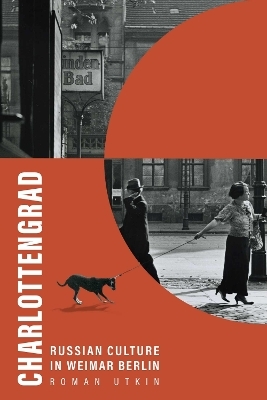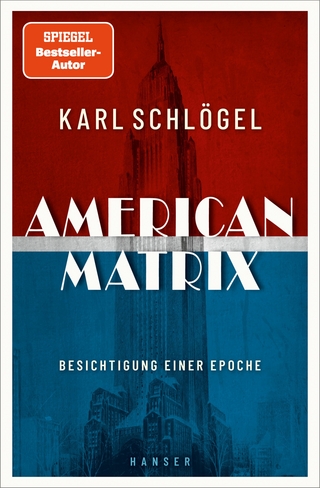
Charlottengrad
Russian Culture in Weimar Berlin
Seiten
2024
University of Wisconsin Press (Verlag)
978-0-299-34444-3 (ISBN)
University of Wisconsin Press (Verlag)
978-0-299-34444-3 (ISBN)
- Noch nicht erschienen (ca. November 2024)
- Versandkostenfrei innerhalb Deutschlands
- Auch auf Rechnung
- Verfügbarkeit in der Filiale vor Ort prüfen
- Artikel merken
As many as half a million Russians lived in Germany in the 1920s, most of them in Berlin, clustered around the Charlottenburg neighborhood which became known as “Charlottengrad.” Utkin explores how community members balanced their sense of Russianness with their position in a modern city charged with artistic, philosophical, and sexual freedom.
As many as half a million Russians lived in Germany in the 1920s, most of them in Berlin, clustered in and around the Charlottenburg neighborhood to such a degree that it became known as “Charlottengrad.” Traditionally, the Russian ÉmigrÉ community has been understood as one of exiles aligned with Imperial Russia and hostile to the Bolshevik Revolution and the Soviet government that followed. However, Charlottengrad hosted a full range of personal and political positions vis-À-vis the Soviet project, from enthusiastic loyalty to questioning ambivalence and pessimistic alienation.
By closely examining the intellectual output of Charlottengrad, Roman Utkin explores how community members balanced their sense of Russianness with their position in a modern Western city charged with artistic, philosophical, and sexual freedom. He highlights how Russian authors abroad engaged with Weimar-era cultural energies while sustaining a distinctly Russian perspective on modernist expression, and follows queer Russian artists and writers who, with their German counterparts, charted a continuous evolution in political and cultural attitudes toward both the Weimar and Soviet states.
Utkin provides insight into the exile community in Berlin, which was one of the earliest to face and collectively process the peculiarly modern problem of statelessness. Charlottengrad analyzes the cultural praxis of “Russia Abroad” in a dynamic Berlin, investigating how these Russian ÉmigrÉs and exiles navigated what it meant to be Russian when the Russia they knew no longer existed.
As many as half a million Russians lived in Germany in the 1920s, most of them in Berlin, clustered in and around the Charlottenburg neighborhood to such a degree that it became known as “Charlottengrad.” Traditionally, the Russian ÉmigrÉ community has been understood as one of exiles aligned with Imperial Russia and hostile to the Bolshevik Revolution and the Soviet government that followed. However, Charlottengrad hosted a full range of personal and political positions vis-À-vis the Soviet project, from enthusiastic loyalty to questioning ambivalence and pessimistic alienation.
By closely examining the intellectual output of Charlottengrad, Roman Utkin explores how community members balanced their sense of Russianness with their position in a modern Western city charged with artistic, philosophical, and sexual freedom. He highlights how Russian authors abroad engaged with Weimar-era cultural energies while sustaining a distinctly Russian perspective on modernist expression, and follows queer Russian artists and writers who, with their German counterparts, charted a continuous evolution in political and cultural attitudes toward both the Weimar and Soviet states.
Utkin provides insight into the exile community in Berlin, which was one of the earliest to face and collectively process the peculiarly modern problem of statelessness. Charlottengrad analyzes the cultural praxis of “Russia Abroad” in a dynamic Berlin, investigating how these Russian ÉmigrÉs and exiles navigated what it meant to be Russian when the Russia they knew no longer existed.
Roman Utkin is an assistant professor of Russian, East European, and Eurasian studies at Wesleyan University.
List of Illustrations
Acknowledgments
Note on Transliteration and Translation
Introduction
1. Unsentimental Journeys: Berlin as Trial Emigration
2. Guides to Berlin: Exiles, ÉmigrÉs, and the Left
3. Performing Exile: The Golden Cockerel at the Berlin State Opera
4. Nabokov, Berlin, and the Future of Russian Literature
5. Queering the Russian Diaspora
Conclusion
Appendix: The Russian Poets Club Meeting Minutes, Berlin, 1928
Notes
Bibliography
Index
| Erscheint lt. Verlag | 26.11.2024 |
|---|---|
| Zusatzinfo | 22 b&w illus. |
| Verlagsort | Wisconsin |
| Sprache | englisch |
| Maße | 152 x 229 mm |
| Gewicht | 513 g |
| Themenwelt | Geisteswissenschaften ► Geschichte ► Regional- / Ländergeschichte |
| Geisteswissenschaften ► Sprach- / Literaturwissenschaft ► Anglistik / Amerikanistik | |
| Geisteswissenschaften ► Sprach- / Literaturwissenschaft ► Literaturwissenschaft | |
| ISBN-10 | 0-299-34444-4 / 0299344444 |
| ISBN-13 | 978-0-299-34444-3 / 9780299344443 |
| Zustand | Neuware |
| Haben Sie eine Frage zum Produkt? |
Mehr entdecken
aus dem Bereich
aus dem Bereich
Erinnerungen
Buch | Softcover (2024)
Pantheon (Verlag)
16,00 €


